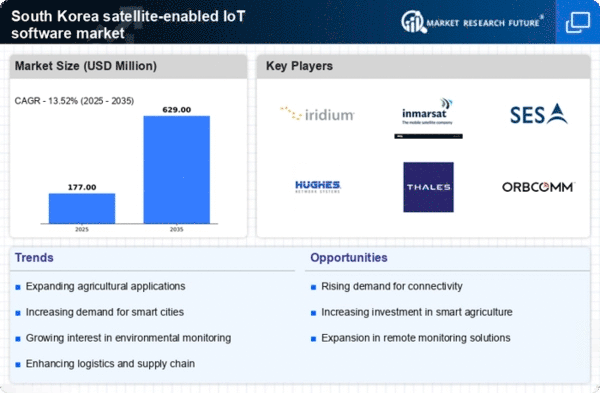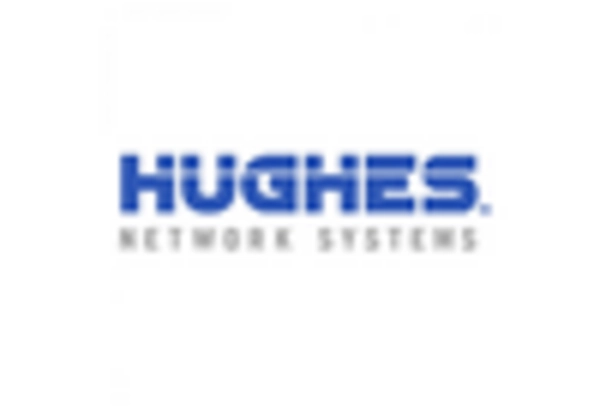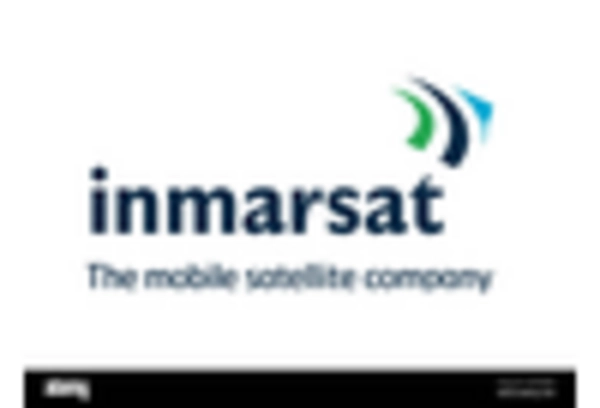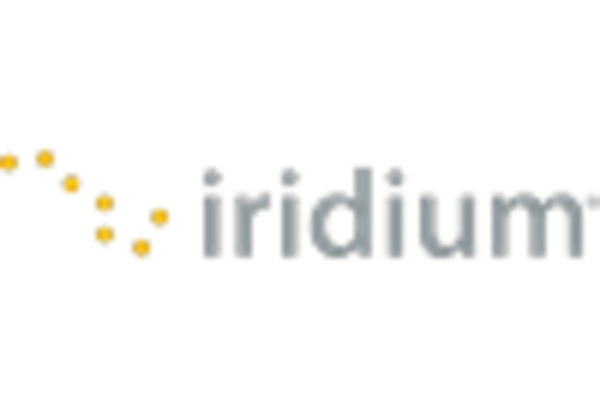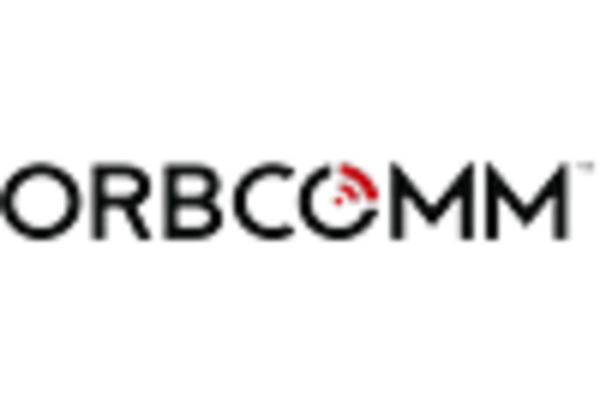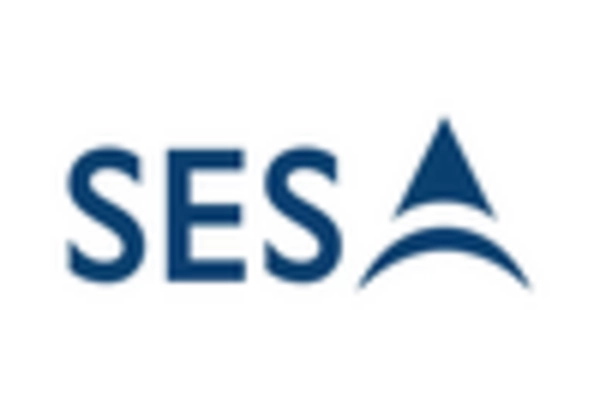Rising Demand for Smart Cities
The push towards smart city initiatives in South Korea is driving the satellite enabled-iot-software market. Urban areas are increasingly integrating IoT solutions to enhance infrastructure, improve public services, and optimize resource management. The South Korean government has allocated approximately $1.5 billion for smart city projects, which includes the deployment of satellite-enabled IoT technologies. This investment is expected to facilitate real-time data collection and analysis, thereby improving urban planning and management. As cities become more interconnected, the demand for satellite enabled-iot-software solutions is likely to grow, enabling better traffic management, waste disposal, and energy efficiency. The satellite enabled-iot-software market is poised to benefit from this trend, as municipalities seek to leverage advanced technologies to create more livable and sustainable urban environments.
Advancements in Satellite Technology
Technological advancements in satellite systems are playing a pivotal role in shaping the satellite enabled-iot-software market. Innovations such as miniaturized satellites and improved data transmission capabilities are enhancing the functionality and accessibility of satellite-based IoT solutions. In South Korea, the development of high-throughput satellites is enabling faster and more reliable data communication, which is essential for real-time applications. The government has invested heavily in satellite technology, with plans to launch several new satellites in the coming years. These advancements are likely to expand the range of applications for satellite enabled-iot-software, making it more attractive to various sectors, including agriculture, transportation, and disaster management. As technology continues to evolve, the market is expected to experience significant growth driven by enhanced capabilities.
Expansion of Industrial IoT Applications
The industrial sector in South Korea is undergoing a transformation, with a notable shift towards automation and data-driven decision-making. This trend is significantly impacting the satellite enabled-iot-software market, as industries seek to enhance operational efficiency and reduce costs. The South Korean manufacturing sector, which contributes around 30% to the national GDP, is increasingly adopting IoT solutions to monitor equipment, manage supply chains, and ensure quality control. The integration of satellite technology allows for real-time monitoring of remote assets, which is crucial for industries such as mining, agriculture, and logistics. As companies recognize the potential of satellite enabled-iot-software to streamline operations and improve productivity, the market is expected to witness substantial growth in the coming years.
Growing Interest in Remote Asset Management
The need for effective remote asset management is becoming increasingly critical in South Korea, particularly in sectors such as agriculture, logistics, and energy. The satellite enabled-iot-software market is well-positioned to address this need, as it provides solutions for monitoring and managing assets located in remote or hard-to-reach areas. With the rise of e-commerce and the demand for efficient supply chain management, companies are seeking ways to track their assets in real-time. Satellite technology offers a viable solution, enabling businesses to monitor equipment, vehicles, and inventory from virtually anywhere. This trend is likely to drive the adoption of satellite enabled-iot-software, as organizations recognize the benefits of enhanced visibility and control over their operations.
Increased Focus on Environmental Monitoring
Environmental concerns are becoming increasingly prominent in South Korea, prompting a greater emphasis on monitoring and managing natural resources. The satellite enabled-iot-software market is likely to benefit from this trend, as organizations and government agencies seek to utilize satellite technology for environmental monitoring. Applications include tracking air and water quality, monitoring deforestation, and managing natural disasters. The South Korean government has committed to reducing greenhouse gas emissions by 37% by 2030, which necessitates effective monitoring systems. Satellite enabled-iot-software can provide critical data for environmental assessments, enabling timely interventions and policy adjustments. This growing focus on sustainability and environmental protection is expected to drive demand for innovative satellite solutions in the market.


